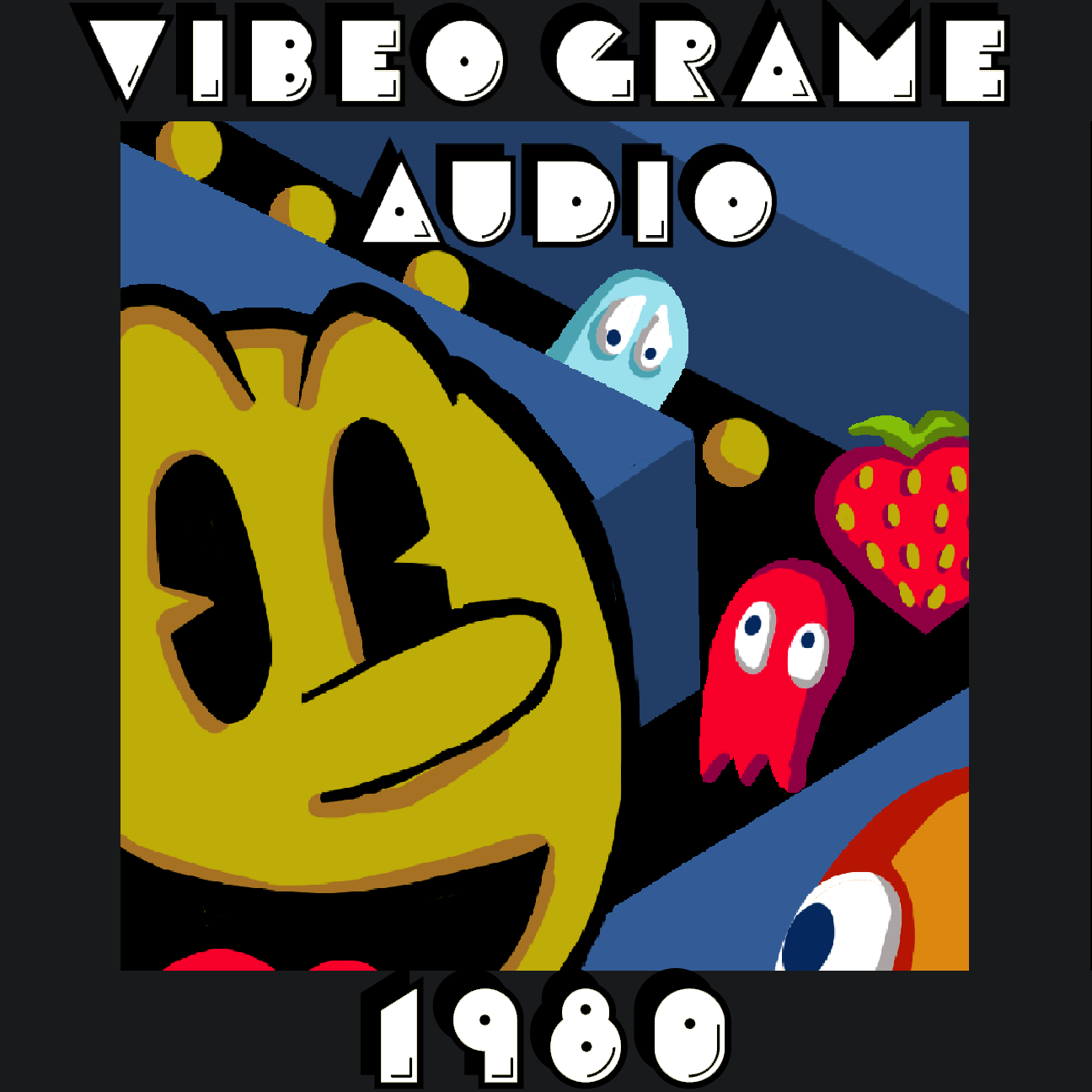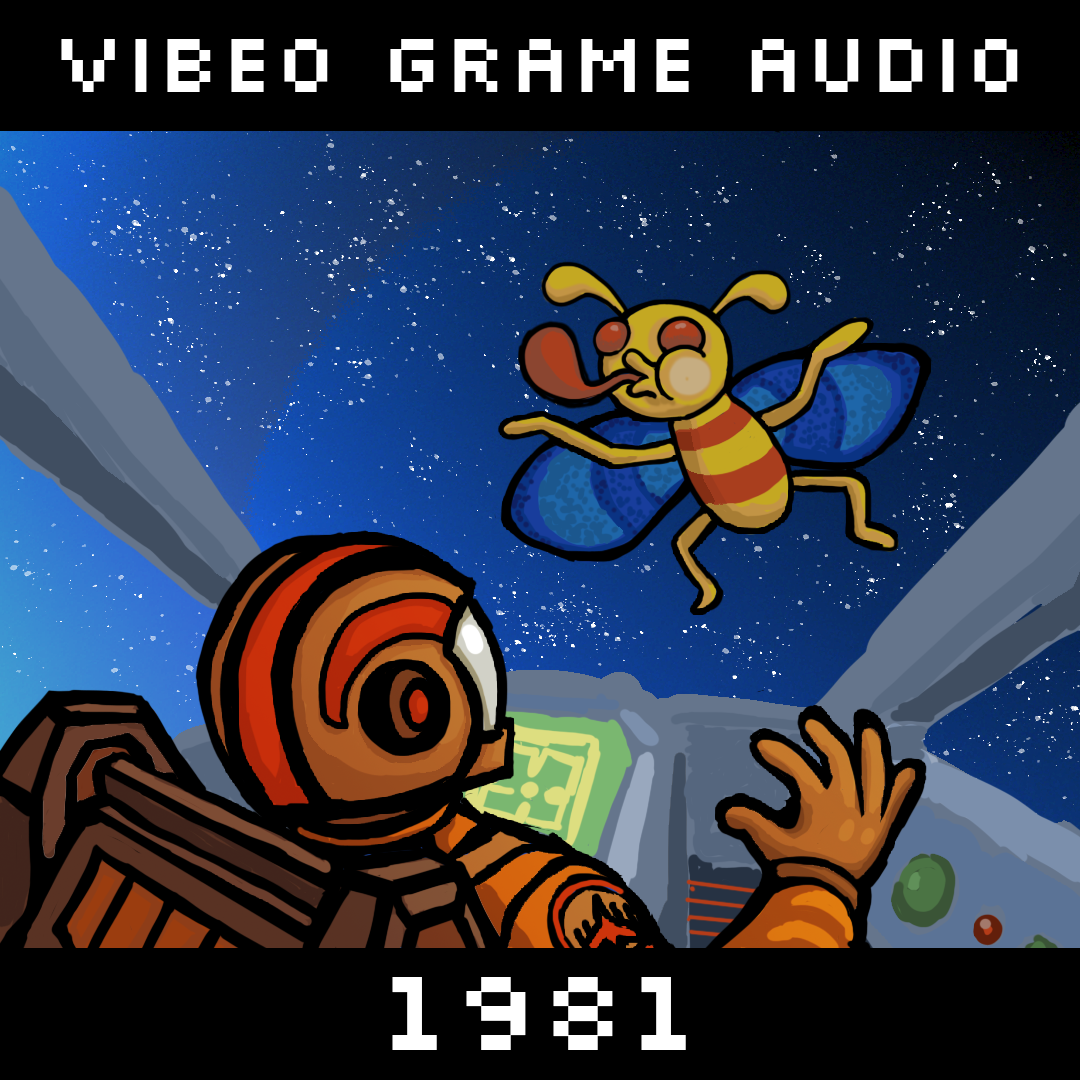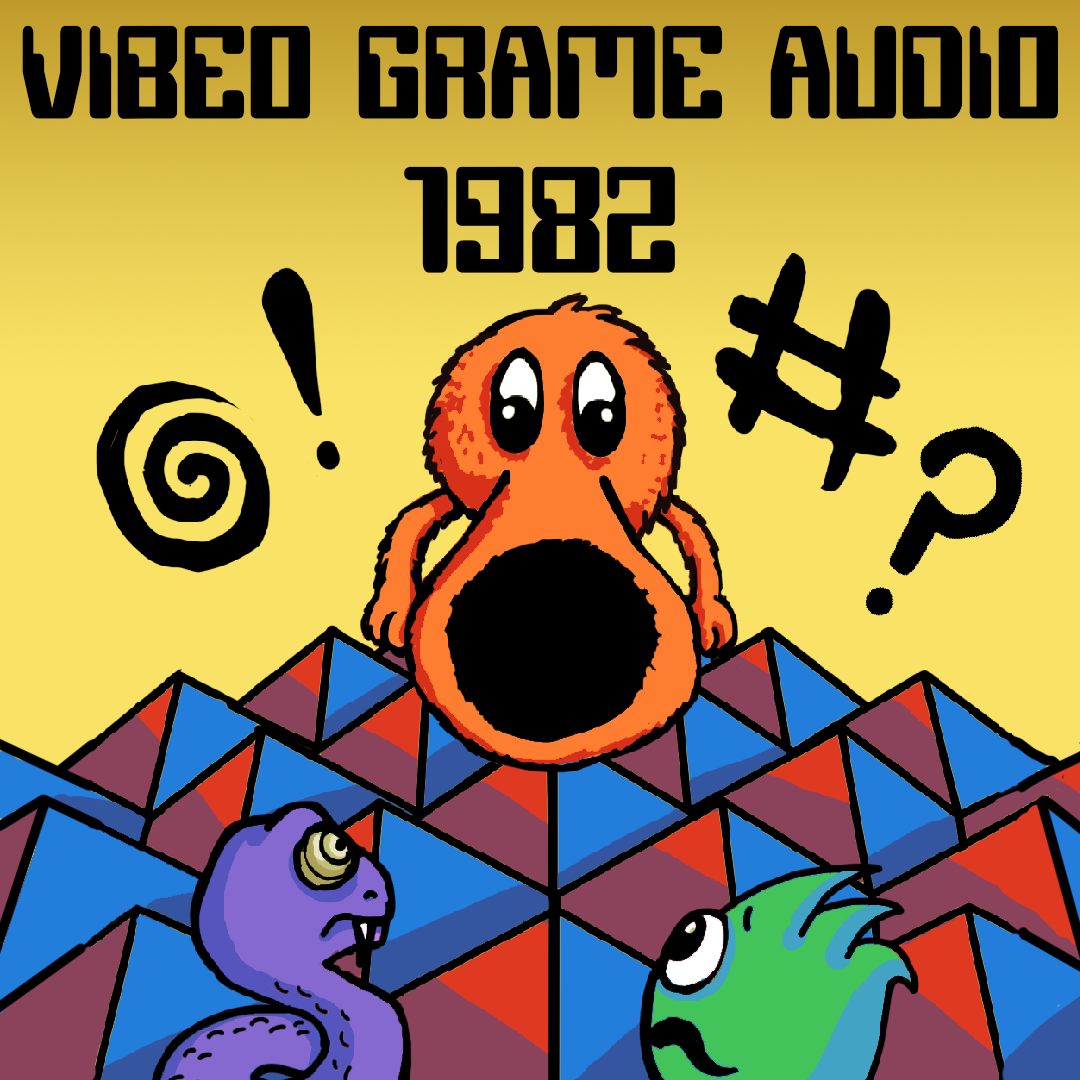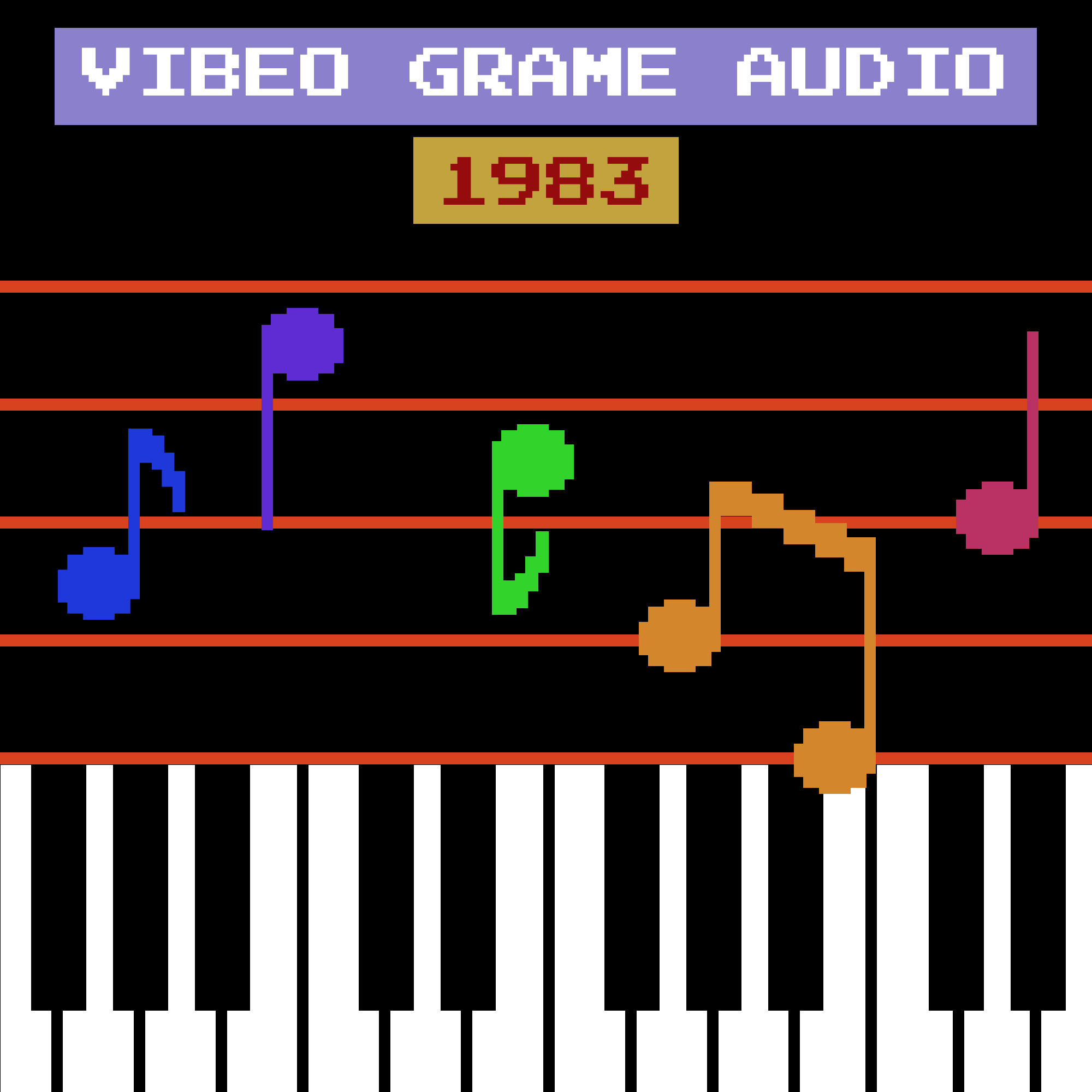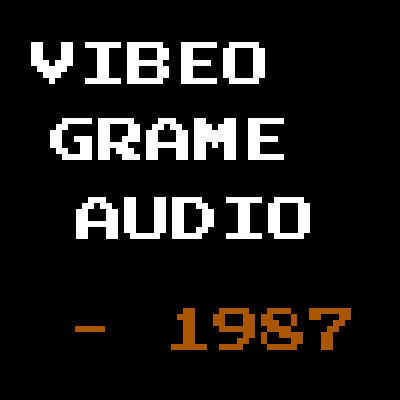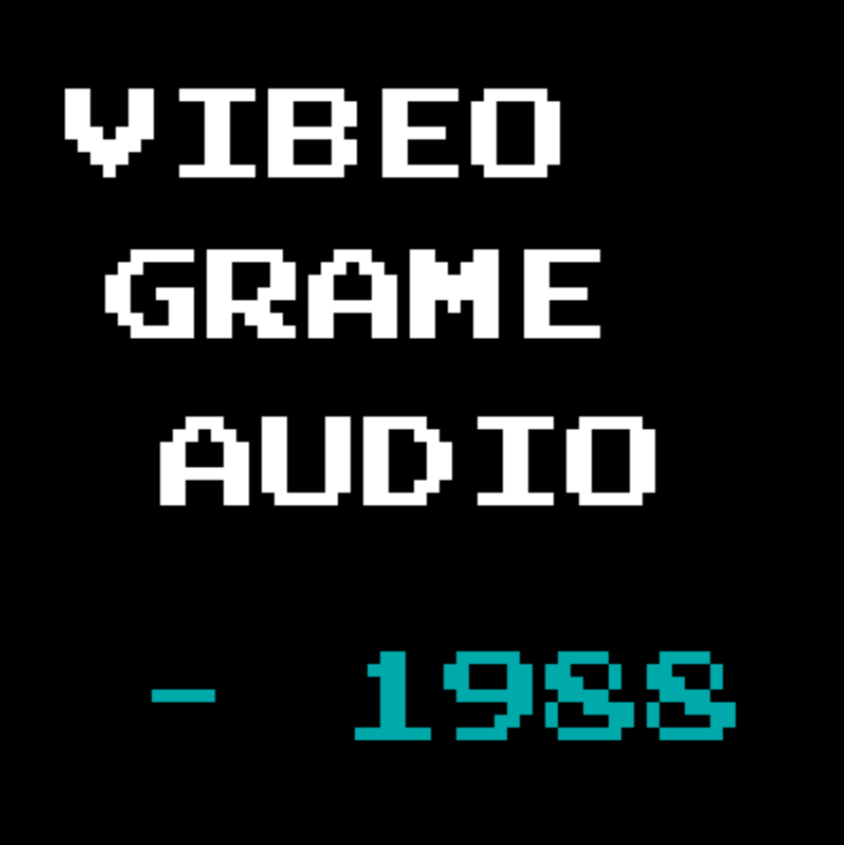Something I’ve noticed as I was putting together this year’s list... there’s a lot of sequels. A lot. Sequels have been a thing in gaming since, well, as long as the industry has been around. I’m not sure I’ve had a list so choked with them until this one, though. Of the ten games featured, seven are direct sequels or otherwise not the first in a franchise. And of the remaining three, two of them (the Sonic games) are the beginning of their own franchise which will spawn dozens of sequels and spinoffs as well as at least three movies.
Not that there’s anything necessarily wrong with sequels. I just thought it was interesting to note that, even by 1991, the industry was packed with them. The biggest companies with the most money are pumping all their resources into the products that already work. Since these sequels already have the resources and the talent, the best soundtracks tend to come from them. That’s just how things go.
So, if you’re the type to complain that gaming these days is just triple-A studios churning out franchise content and refusing to risk anything on new IP... you’re 30 years late to the party, pal. Woo, capitalism!
#10. Wing Commander II
Composer: George “The Fat Man” Sanger, Dana Karl Glover, Martin Galway
Platform: PC
“Wait, WC 2? Where’s the first game?” I can hear you ask. Well the short version is that the first game’s music wasn’t good enough to break into the top ten of 1990, and 1991 is less competitive.
When Wing Commander first came out, it was supposed to be the biggest thing in gaming. Well, it certainly cost more to make than any other game up to that point. WC as a series was part of a big push in the 90s to get games taken more seriously. These aren’t simple shoot ‘em ups with bleeps and bloops for sound, but fully realized interactive stories. What this ended up revealing about the industry is that many folks’ idea of “take games seriously” meant “make games more like films.” The particular film these Wing Commander games want to emulate is Star Wars.
And I’m sorry to report that the audio comes up short. The music is enough like Star Wars (and other epic space movies of the 70s/80s) to invite the comparison, and Wing Commander doesn’t come out favorably. Not helping things is that the tracks do not sound in rhythm with each other. It’s as if each individual instrument were played by hand on a keyboard and no work was done to quantize rhythms. Some of them are fine - in particular, any track in an easy listening or jazz style. I suspect the composer was more familiar and comfortable creating jazz, and it shows in how much higher the quality is for the jazzy tracks. It’s not the composer’s fault he can’t write bargain bin Star Wars music, but the developers’ for hiring the wrong guy.
Watch a playthrough of Wing Commander II: Vengeance of the Kilrathi
Listen to the OST
#9. Sonic the Hedgehog (Game Gear)
Composer: Yuzo Koshiro
Platform: Sega Game Gear
Here he is, the big blue ball! After five years of trying, Sega finally got their mascot platformer, their Mario-killer. If you’re like me, you were surprised when you first learned that Sonic was not Sega’s first attempt. Before him was Alex Kidd in a series that never took off. There are probably multiple reasons why Alex Kidd never grew to be Sega’s answer to Mario. One reason that Sonic did so well, though, is that Sega specifically branded him as the anti-Mario. Where Mario is a cutesy series appropriate for small children, Sonic is for edgy white boys who love heavy metal and staying up past their bedtime. As the ad says: Genesis does what Nintendon’t.
Sonic had two debut releases in 1991. You probably know the far more popular version for the Sega Mega Drive/Genesis. But there was a companion piece for the Game Gear (Sega’s answer to the Game Boy). This 8-bit version was also ported to the Master System. It’s a fine game but obviously the Genesis version is far superior in every way. As for the soundtrack, it’s good enough. A couple of the tunes are catchy, especially the Bridge theme, which is easily my favorite one. But there’s no hiding how behind the curve the Game Gear version sounds compared to the Genesis.
Watch a playthrough of Sonic the Hedgehog for the Game Gear
Listen to the OST
#8. Castlevania II: Belmont’s Revenge
Composer: Hidehiro Funauchi
Platform: Game Boy
Probably the most impressive achievement here is how Funauchi gets these crisp, clear tones and groovy beats out of the Game Boy. Let’s just say the system is difficult to work with due to its limited audio capabilities. Somehow this game makes the system sound better than it is. Not many Game Boy writers pulled that one off.
I’m especially partial to “Road of Enemy.” It’s a simple groove but it’s incredibly effective. That panning is godly.
Watch a playthrough of Castlevania II: Belmont’s Revenge
Listen to the OST
#7. Battletoads
Composer: David Wise
Platform: NES
The NES’ audio chip didn’t have built-in functionality for effects like reverb or delay, among others. Simulating these effects required some clever doubling of sound channels. For instance, by having a second pulse channel repeat the content of the first, offset by a short time and at a lower volume, a tune could convincingly create an echo or delay. Most of the time, that’s what NES composers did. It required that you use up an entire channel for the effect, reducing your already meager 3 channels to 2.
Unless you’re David Wise, though. I don’t think it’s possible that Wise was the only person to ever figure this trick out but Battletoads is definitely the first soundtrack where I noticed it: by keeping all of the melody elements extremely staccato, Wise is able to include both the melody and the delay/echo in the same channel. The notes are so short that one can be written after the other without causing any cutoff of the notes, and he gets to use all 3 pitched channels the whole time. Good work, David Wise. Gold Star.
There are some certified bangers, here, too. If I have to pick one, I’m going with “Wookie Hole.” Absolutely stuffed to the rafters with that delay/echo trick, as well as others.
#6. Metroid II: Return of Samus
Composer: Ryoji Yoshitomi
Platform: Game Boy
That’s right, two Game Boy games on the list this year. 1991 didn’t have as many entries for consideration so it’s easier for the smaller titles to make it.
Anyway, Metroid II is easily the best Game Boy soundtrack of the year. It’s not often that chiptune aims for ambient music, less so with the Game Boy. (Trust me, I’ve written music that’s Game Boy compatible, and it was not designed for ambient music.) Check out the three “Cavern” tracks to see what I mean: one, two, and three. Wildly original usage of the simple waveforms the Game Boy is limited to.
Watch a playthrough of Metroid II: Return of Samus
Listen to the OST
#5. Sonic the Hedgehog (Genesis)
Composer: Masato Nakamura
Platform: Sega Genesis
No, I didn’t make a mistake - Sonic the Hedgehog is on here twice. First we heard the 8-bit version released for the Sega Game Gear and Master System. Now we get to the good stuff.
I make it no secret that the Genesis chip pales in comparison to the SNES. That doesn’t mean the Genesis can’t sound good on its own. Sonic the Hedgehog proves that in the right hands, the system can really sing! It’s like there are two distinct eras in the life cycle of the Sega Genesis: the pre-Sonic and post-Sonic. After this game, there are going to be loads of Genesis titles that find a way to bring out the best in the sound chip. Too bad it took 3 years into the system’s life cycle to get there.
As for the game itself, it’s great but not top tier to me. You have the absolute classic that is the Green Hill Zone theme, but the rest of the soundtrack just feels a bit off-kilter. Not sure how else to describe it. Perhaps that’s because I’ve played future Sonic games and know how the IP will evolve, and in this early stage Sonic hadn’t quite found his voice.
#4. The Legend of Zelda: A Link to the Past
Composer: Koji Kondo
Platform: Super NES
If you were to ask me for an Ur-example of a classic video game, I might answer with The Legend of Zelda: A Link to the Past. ALttP might just be a perfect game. Not a single element is out of place here, from the gameplay to the level design to the graphics to the music.
Oh yeah, it’s Koji Kondo again. How does he keep doing it? He really has a way of turning simple ideas into masterpieces. Younger readers may be surprised to find out that this is the game that originated many of the series’ most famous tunes. The following tracks first appear not in Ocarina of Time, but here in A Link to the Past: Zelda’s Lullaybe, Kakariko Village, the Master Sword’s Theme, Hyrule Castle, Death Mountain, Ganon’s Theme, and the Select Screen/Great Fairy’s Theme.
Watch a playthrough of The Legend of Zelda: A Link to the Past
Listen to the OST
#3. Super Castlevania IV
Composer: Masanori Adachi, Taro Kudo
Platform: Super NES
It feels criminal to only put this game at number 3, but that’s how it goes sometimes. Easily the best of the series so far, Super Castlevania IV builds on its predecessors and starts taking the franchise in a new direction. With the SNES, the series is able to really delve into the gothic horror aesthetic that just wasn’t possible in chiptunes. There’s still some of the old 80s action music in here, but it’s complemented well by more angular and moody tracks, as well as the occasional piece that’s nothing but atmosphere.
Obviously I recommend listening to the entire soundtrack. It’s one of the greatest of the SNES era and still holds up today. If you’re strapped for time and you just want to hear a few of the good tracks, you can start with The Courtyard for the atmosphere. Then move on to the big hit from the game, Simon Belmont’s Theme. But the absolute best track has to be The Submerged City, a beautiful hybrid of the gothic horror and jazz that somehow works.
Watch a playthrough of Super Castlevania IV
Listen to the OST
#2. Monkey Island II: LeChuck’s Revenge
Composer: Michael Land, Peter McConnell, Clint Bajakian
Platform: PC
We’ve heard dynamic music in games before - that’s the kind of music that can react to player input on the fly - but up until this point it’s been quite primitive. It first appeared in Space Invaders all the way back in 1977. In that game, the music would speed up as you shot down more alien spaceships. But that was just an accident of primitive hardware that couldn’t render all the spaceships and play the music at the same time. In 1982, Dig Dug became the first major game to use dynamic music deliberately, though very simply: the music would merely start and stop as the player moved and stood still. Outside of those two games I haven’t really covered dynamic music, even though there have been some notable releases to use it - most famously how in Super Mario World the congas would only play along while you were riding Yoshi.
Monkey Island 2 is famous for pushing dynamic music into a whole new world. The soundtrack is this game is capable of dynamically transitioning from one tune to another without stopping, by progressing through slight variations as your character moves around. Picture it - you’re in one building and the soundtrack is playing one jaunty little tune. As you leave, the tune doesn’t stop, but the instrumentation changes, and you walk into a second building. Then you realize a second tune has started, but you aren’t sure when it happened. The first track never stopped. There wasn’t even a fade out of one track and a fade in of another. It’s as if you’re playing the game with a live band in the room and they’re reacting in real time to your actions. The effect is so seamless it’s possible that you could have played the game before and never knew this trick until you read this very paragraph.
Admittedly it’s not a trick that can work for every game. For one, it requires a large set of areas where it’s appropriate to have multiple tracks that all have the same tempo and basic rhythm. It’s also apparently difficult to program. LucasArts had to develop their own engine to get this to work in 1991. These days dynamic music is much more common, but even with all our advanced tech it’s extremely rare to get something this complex and well-integrated.
Watch a playthrough of Monkey Island II: LeChuck’s Revenge
Listen to the OST
#1. Final Fantasy IV
Composer: Nobuo Uematsu
Platform: Super NES
The importance of Final Fantasy IV to the genre cannot possibly be overstated. It was a huge step forward in every single way. For at least a decade after it was like every other RPG lived in its shadow, either following in its footsteps obediently or defiantly breaking the conventions as some kind of commentary. Sure, FFIV hasn’t aged all that well by the 2020s. To the kids of today the plot will read as very barebones and stupidly hokey, with characters you want to throttle because they’re all idiots. It’s also easy to forget the mechanics that seem boring and simple today were groundbreaking in 1991. For its time, this was the most complex and innovative JRPG ever.
I would also say it’s the point at which Dragon Quest and Final Fantasy switched places. All through the 80s, FF was playing catch-up with the rival franchise. Nobuo Uematsu’s soundtracks were beautiful, yes, but it always felt like Koichi Sugiyama was one step ahead of him, setting the pace. No more. With FF4, Uematsu takes the crown and doesn’t ever give it back. Do you wonder why every JRPG through the 90s sounds the way it does? Listen to this soundtrack and you’ll hear it. They’re all Final Fantasy IV. Romancing SaGa is FF4 with a more classical sound. Illusion of Gaia is a more pastoral FF4. Breath of Fire is FF4, but badly written. You get the idea. They all owe their sound to this one game.
It’s also the best Final Fantasy soundtrack so far. Finally Uematsu gets some of that orchestration that his music has been begging for all this time. The Theme of Love might just be one of the greatest tunes he’s ever written, one of the greatest RPG tunes ever. If you have any interest in video game music, then - well, you probably already know this one - but just in case, you owe it to yourself to listen to FF4.











